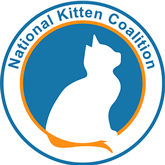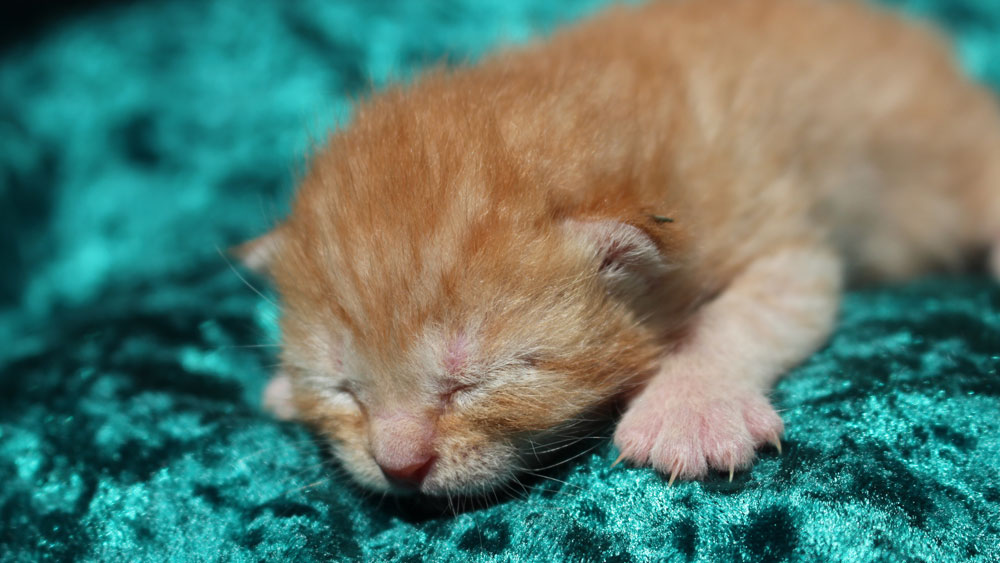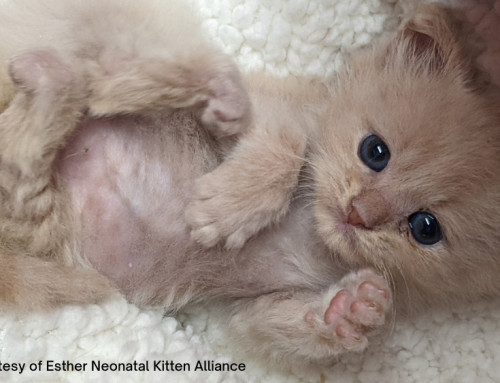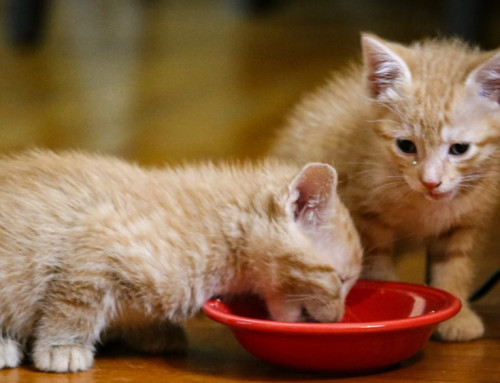Share this resource or email it to a friend!
Toxoplasmosis is a disease caused by the one-celled parasite, Toxoplasma gondii. Although other animals can become infected with toxoplasmosis, the disease only reproduces in cats and is shed in their feces. However, preventing toxoplasmosis by rehoming kittens or cats or putting them outdoors is not a solution. Here are the facts.
Kittens born outside become infected soon after they’re weaned by eating infected animals that they themselves hunt or that are brought to them by their mom. When they’re weaned, kittens’ immune systems are able to suppress T. gondii in vital organs, and they rarely become ill.
Kittens usually shed T. gondii oocysts within the first 2-3 weeks of eating contaminated animals, especially ground-feeding, plant-eating mammals and birds. Then it takes 1-5 days of exposure to oxygen and appropriate humidity and temperature before the oocysts become infective to people.
Kittens typically only shed the oocysts once during their lifetime just after their first exposure. However, oocysts can survive for many months in moist soil; they’re highly resistant to environmental factors such as freezing, drying and disinfection.
The disease is of human concern because it can cause birth defects in babies if it’s contracted by a woman during her first pregnancy. However, the most common way that people acquire toxoplasmosis is by eating raw or undercooked meat that is infected with toxoplasma cysts. People can also acquire toxoplasmosis by accidentally ingesting old, infected cat feces in soil. If you’re pregnant and a foster, adopter, or animal shelter/rescue group staff or volunteer, please follow the recommendations listed below.
Although the family cat is often blamed for transmitting toxoplasmosis, the presence of cats in a household has not been linked to human infections. Recommendations to prevent toxoplasmosis in people and kittens, include:
- Avoiding eating raw or undercooked meat
- Cleaning utensils and surfaces that have been in contact with raw or undercooked meat
- Washing all vegetables and fruits with mild soap and water
- Wearing rubber gloves and washing hands after cleaning the litter box or gardening
- Having someone who isn’t pregnant scoop the litter box daily and disinfect weekly
- Keeping kittens safely indoors to prevent hunting
- Feeding only commercially-prepared kitten food, not raw or undercooked meat
- Preventing the birth of kittens outdoors by supporting Trap-Neuter-Return programs
Unfortunately, the general public, as well as human and veterinary health professionals, are often misinformed about toxoplasmosis and cats. Learn the facts by referring to the resources below.










